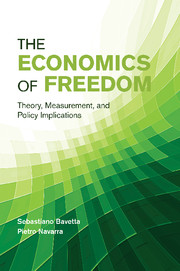8 - Choice, Freedom, and the Good Society
from II - AUTONOMY FREEDOM AND THE WELFARE STATE
Published online by Cambridge University Press: 05 July 2012
Summary
The last chapter in a book is almost obliged to offer a summary of the arguments tackled and deployed in the pages that precede. In the case at hand, the obligation is inescapable as the journey has been long and across disciplines. We do not want to dodge such duties. Yet, we feel that an important aspect – albeit one that cannot be exhausted here – of our measure of freedom is still open. This has to do with its contribution to the design of a satisfactory view of liberalism and a good society.
The accomplishment of this final task cannot be eschewed if we want to provide a complete picture of the effort undertaken in these pages. After all, the value of developing a measure of freedom must extend beyond the measure itself to involve considerations that embrace, first and foremost, a view of liberalism and a good society. However, a fully fledged prescriptive picture would require the deployment of an argument for which adequate space – and probably even the reader's patience – is not available, at this point. We then limit ourselves to a simple sketch of the view of liberalism that our interpretation of autonomy freedom entails. To this end, we exploit a powerful tool: the reasons why choice is valuable. Such a tool turns out to be incredibly flexible. The rankings of choice introduced in the first part of the book can be interpreted in the light of the value that each of them attributes to choice.
- Type
- Chapter
- Information
- The Economics of FreedomTheory, Measurement, and Policy Implications, pp. 175 - 190Publisher: Cambridge University PressPrint publication year: 2012



